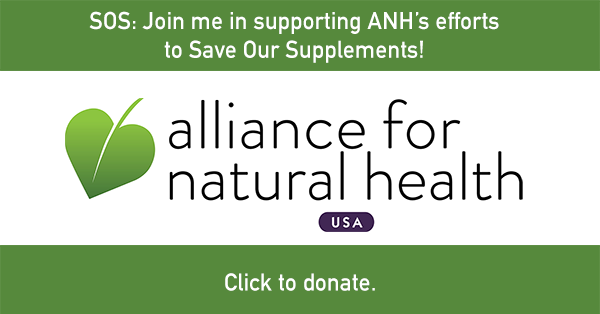Multivitamins containing most of the essential vitamins and minerals at doses that provide greater than 100% of the RDA are the most commonly used dietary supplements; approximately 1/3 of US adults takes one or another formulation.
But the bloom is off the rose with major press outlets declaring:
- “Multivitamins are a waste of money for most people”—Study Finds
- “Multivitamins continue to disappoint”—Sydney Morning Herald
- “Multivitamins and Supplements—Benign Prevention or Potentially Harmful Distraction?”—JAMA
One of their themes is that gullible people will take multivitamins as a bulwark against all misfortune while engaging in unhealthy diet and lifestyle practices. The emphasis, the experts intone, should be on diet and exercise.
This is one of the shibboleths that I’ve been battling for my entire career. The overwhelming majority of my patients and audience take multivitamins not as a substitute for, but rather as an accouterment of, a concerted effort to eat healthilyvitamins and maximize physical fitness. I can count on one hand the number of patients I’ve encountered in a 30-plus year career who continue to smoke, gourmandize, and skip workouts because they were under the erroneous impression that supplements could shield them from their habits’ toll.
Let’s take a closer look at the studies that have lately called into question the efficacy of multis.
One is the COSMOS trial that evaluated the impact of either of two interventions: taking a multi vs. taking a cocoa flavanol supplement. Interestingly, the cocoa arm of the study obtained a significant reduction in major cardiovascular events. It curbed cardiovascular death by 27%!
The multivitamin takers did not fare as well. There was no overall effect on cancer incidence (which in some ways is reassuring because some previous trials hinted that beta carotene and alpha tocopherol and perhaps folic acid could increase risk of certain cancers); there was a small signal that the multi was protective against lung cancer. The good news, however, is that the multivitamins showed no tendency to hasten cancer recurrence in previous survivors of cancer, which had been a concern, albeit theoretical.
When it came to cardiovascular disease prevention, the multis struck out. This is notwithstanding a 2018 review that recently showed B vitamins could reduce the risk of stroke—but only in a subpopulation with elevated homocysteine. But the COSMOS trial showed no benefit of multivitamins overall.
A closer look may explain the “meh” results of multivitamin supplementation. The research was sponsored in part by Pfizer Consumer Care, a subsidiary of pharmaceutical firm GlaxoSmithKline, who supplied the Centrum Silver®️ used as a multi. I’m not a fan!
Except for B12, which delivers over 10 times the RDA, most of its nutrients are pretty paltry. For example, there’s only 60 mg of vitamin C; 3 mg of vitamin B6; 50 mg of magnesium; and 19 mcg of selenium.
Also the quality of the ingredients is suboptimal: Vitamin A is provided as beta carotene instead of broad spectrum carotenoids; vitamin E as synthetic DL-alpha Tocopheryl Acetate instead of mixed tocopherols and tocotrienols; folic acid instead of more bioavailable l-methyl folate; and magnesium as cheap, poorly absorbed magnesium oxide.
Contrast that with a more comprehensive, potent multi like Alpha Base from Ortho Molecular with premium delivery forms of critical nutrients.
It might also be noted that the study duration was just 3 1/2 years, which might not be enough time to capture the long-term benefits of supplementation.
The US Preventive Services Task Force (USPSTF) was quick to issue an opinion that:
“The USPSTF concludes that the evidence is insufficient to determine the balance of benefits and harms of supplementation with multivitamins for the prevention of cardiovascular disease or cancer.”
But the USPTF has recently drawn fire for concluding that prostate screening for asymptomatic men over 70–the mainstay of many cancer prevention campaigns—is unwarranted. They’re equal opportunity skeptics about any clinical intervention, even concluding that statins for high cholesterol in healthy adults over 75 aren’t justified.
And remember, we’re talking about a narrow category of nutritional supplements—multivitamins. They’re less likely to be beneficial at low doses for a relatively healthy population not suffering from malnutrition. Studies like COSMOS have little to say about targeted supplementation according to specific needs with higher amounts of, for example, vitamin D, magnesium, fish oil, or nutraceuticals like CoQ10, curcumin, or probiotics.
Unfortunately, for vast swaths of the public, multivitamins are conflated with anything you take in pill form as a supplement; on a recent TV ad, for example, I saw a folksy testimonial from someone who said that the fruit and veggie pills they were taking were their favorite “vitamin”.
Of course, there’s systemic bias in the media against supplements. A great 2019 paper by Vasquez and Pizzorno entitled “Concerns about the integrity of the scientific research process—focus on the negative publications regarding nutrition, multivitamins, fish oil and cardiovascular disease” nails it:
“A major and serious problem arises when unskilled and invalid research is published by authors (including nonphysician journalists) in major journals which mischaracterizes the validity of nutrition interventions (e.g. essentially always concluding that nutritional interventions are inefficacious or potentially hazardous) and then such research is used politically and in the media to disparage, restrict and regulate practitioners and the nutrition supplement industry to the detriment of human health.”
In this context, it’s worthwhile to note that there continues to be a concerted campaign to rein in the supplement industry and limit consumer choices. A chorus of voices within the FDA, Congress, academic medicine, the pharmaceutical industry and their enablers in the press want more restrictions. Is the current negative publicity about multivitamins a coincidence—or is it furthering a narrative?
Check out our SOS (Save Our Supplements) campaign here, and let your voice be heard.
(See also my previous articles: “16 Reasons Why Most Studies Are Wrong”, “‘Don’t take your vitamins’? So not!”, and “The New York Times has a bias problem (No, it’s not what you think)”)

Congress is seeking to enlarge the FDA’s purview over supplements. It’s truly an “all-hands-on-deck” moment, and I’m personally committed to doing everything I can to preserve your access to potent, innovative supplements of your choosing.
For a limited time, I’ll be matching all donations made by my audience to ANH, up to a total of $5000. Simply click the image above to support ANH’s important work!







